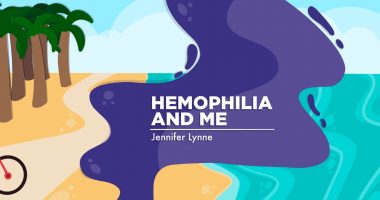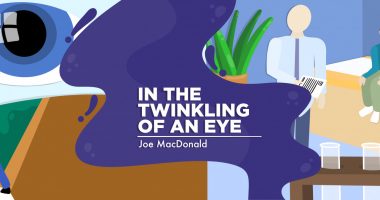When You Don’t Have to Be the First

The toughest part about moving to a new city or state is locating health providers that are covered (most likely) by a new insurance plan. It’s difficult for families with hemophilia, like ours, to find pediatricians and internists. But dentists are by far the most challenging to locate.
Fellow columnist Joe MacDonald wrote about working with his family’s dentist. Hemophilia News Today recently reported on a study about bleeding risks in dental procedures. Once we find a dentist (and now orthodontist), we don’t budge from that practice that understands, is unafraid to ask questions, and checks in with us and our Hemophilia Treatment Centers (HTCs) when necessary. But moving upends this dental care stability.
But last week, I was brought to tears by an extraordinary turn of events. Since our most recent move last year, we’ve driven back to our former city 95 miles away to attend the dentist because she understands hemophilia. She comprehends both the bleeding issues and our family’s dental challenges (we have a kiddo who doesn’t lose baby teeth, and all of them must be pulled). But this dentist who we’d grown to love decided to move to a new city, leaving me in a panic to find a new dentist and schedule an appointment before the next school year.
I scanned our new dental plan for providers, picked one at random, and dialed. I explained the reason for my call to the receptionist and was informed that she would let the dentists know and I’d hear back sometime soon. I went about my day, because having had this conversation many times before, I did not expect to hear back.
About an hour later, my phone rang — it was a dentist from the practice. Her first question was, “What are your daughter’s factor levels?” I’m sure she was a little confused at my pause before I answered — I was in shock at hearing back from someone so quickly and to be speaking with a dentist who spoke my language. She told me that she treats several hemophilia patients in her practice. She knows how to contact the HTCs, and what paperwork and instructions she needs. She asked me, “When do you want to come in?”
I began to get teary; maybe she could tell. Perhaps she knows what it’s like to always be the first; the pioneer or the advocate. Or maybe her compassion for patient-families with rare conditions is simply extraordinary. In that brief conversation, she might not have realized how reassured I felt — safe, comfortable, and ready to shout from our balcony that we are not alone – others like us have paved our way.
The day after my miraculous dental phone call, I started reading Caroline Fraser’s “Prairie Fires: The American Dreams of Laura Ingalls Wilder.” As a young girl, I loved the “Little House” series, so learning more about the real Laura seemed like an adult thing to do. What I’ve learned so far about Laura’s early years on the frontier is that the Ingalls were never truly alone, despite months without contact with the outside world, poverty, and many moves. But family was, in frontier terms, not very far away; and someone almost always created wagon ruts for them to follow.
My chat with our new dentist was one of those golden moments when you realize that you’re not alone. When you understand that someone you’re connected to through the wonder of genetics has made a path for you and yours. Community is everything. Thanks to those families whose names I don’t know, my family can have worry-free dental appointments.
I wonder what we need to do as a community to make the experience of finding health providers more straightforward? How do we systematically share what we know? In our sharing culture, we can compile what we know. Documenting our trail is one step toward eliminating some worries for those who follow after us on this road.
***
Note: Hemophilia News Today is strictly a news and information website about the disease. It does not provide medical advice, diagnosis, or treatment. This content is not intended to be a substitute for professional medical advice, diagnosis, or treatment. Always seek the advice of your physician or another qualified health provider with any questions you may have regarding a medical condition. Never disregard professional medical advice or delay in seeking it because of something you have read on this website. The opinions expressed in this column are not those of Hemophilia News Today or its parent company, BioNews Services, and are intended to spark discussion about issues pertaining to hemophilia.







Comments